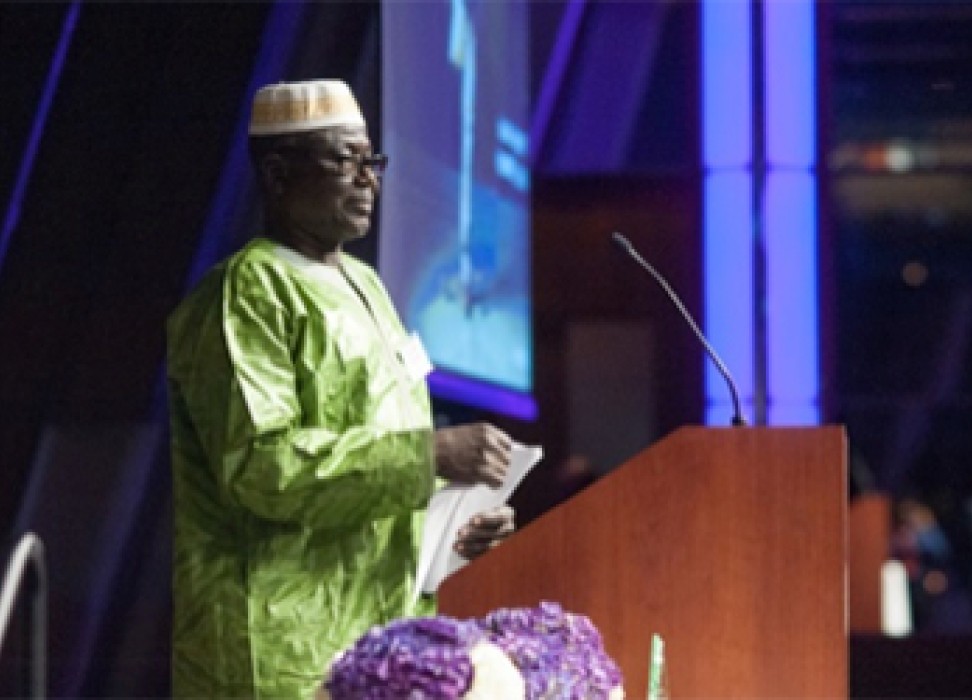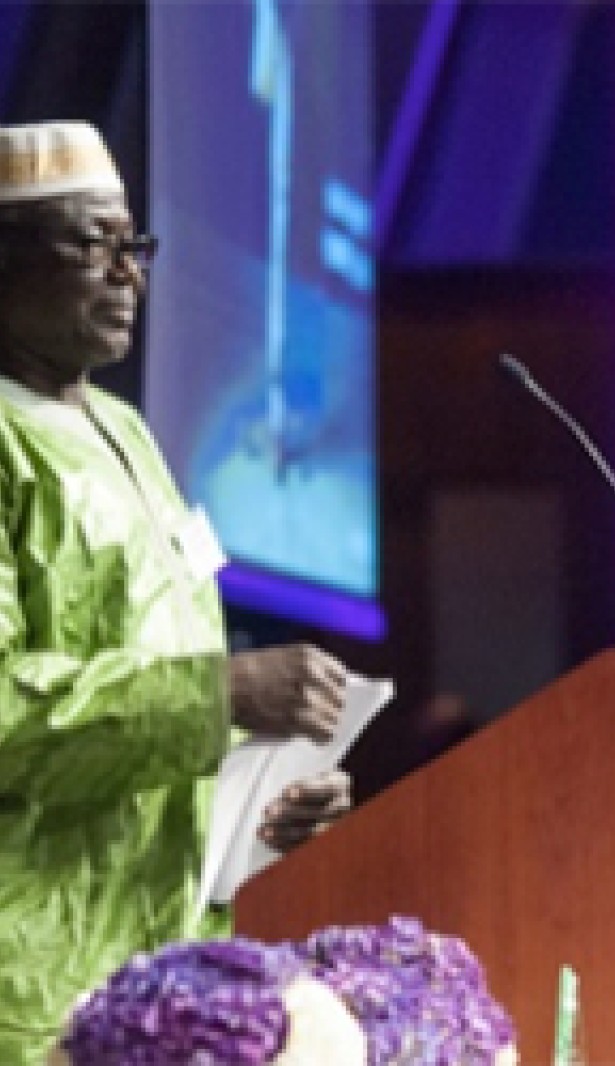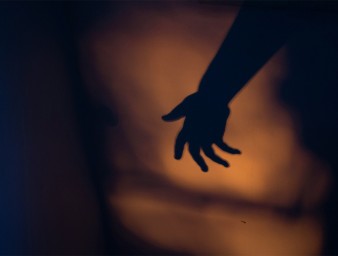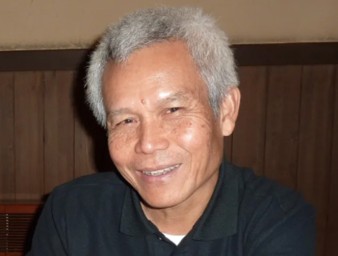Victim to victor: the story of Souleymane Guengueng
19 January 2017

“Three years in prison. Nine years struggling in Chad without contact with the outside world. More than sixteen years of legal battles. Altogether, I have fought more than twenty-six years for justice,” said Souleymane Guengueng, a human rights activist and a victim of torture during Hissène Habré’s Chadian dictatorship.
Guengueng was an accountant in Chad when Habré’s police, the so-called DDS, accused him of participating in illegal political activities. Guengueng, along with numerous other innocent Chadians, was falsely arrested and imprisoned.
“I wasn’t a political figure, I was just an accountant,” he explained.
Guengueng, now 65, spent three years of his life in various types of prisons, including one which they called the “piscine,” the Swimming Pool. Thousands of people just like Guengueng were held and tortured in repurposed swimming pools, many cramped into the same cells. The victims were subject to light bombardment, stress positions and starvation.
“I was locked up and I saw dozens of my fellow prisoners die from torture. They starved. They died of thirst and they died of disease,” Guengueng recalled. For days the guards would purposely leave the deceased in the overcrowded cells with the other prisoners.
“I was separated from one of the people in my cell named Ibrahim. I knew him from school early on,” he said. “When he was separated he was placed with people who did not speak French. He was stuck in his thoughts for three days. He died after those days.” Guengueng, who too almost died from disease, vowed that if he survived he would not stop fighting until he got justice against his torturer.
When Habré fled the country to find exile in Senegal in 1990, the accused were released from the prisons. “When the regime fell there was no justice, there was no reason for the arrests. The purpose of being in prison was to let you die, so it was a miracle to be released,” Guengueng pointed out.
It was then that he began his 26 year journey to justice, collecting testimony from fellow survivors, widows and orphans. He founded the Association of Victims of Political Repression and Crime, where victims began to organize and tell their stories.
“I divided the groups into direct and indirect. It was much easier to get the survivors of torture to share their stories but the families of those taken were afraid of the repercussions,” Guengueng explained. He was able to compile over 800 accounts and in 2001 corroborating police force archives were discovered aiding their case. The archives implicated Habré’s regime and accounted for over 12,000 victims in Chad’s detention centers. Over all, his Government carried out the murders of about 40,000 his “political opponents.”
In 2004 Guengueng was forced to flee to the United States because of the regime’s remaining influence. He contacted the Bellevue/New York University Program for Survivors of Torture, a project financially supported by the UN Voluntary Fund for Victims of Torture, to get the medical treatment he needed and safely continue his journey to justice. Distance would not keep him from forming a case against his torturer.
Guengueng was able to receive vital surgery on his eyes, which helped to reverse the trauma-induced deterioration of his vision, and attend group therapy with other French-speaking survivors. “The programme helped sustain me. I know many of my compatriots did not survive because they did not have the healing and support that I got from this programme.”
In November 2015, 90 survivors and witnesses, including Guengueng, testified against the former regime, and ultimately the former dictator was convicted to life imprisonment in a landmark trial held in May 2016 at the Extraordinary African Chambers in Dakar, Senegal.
“We did not seek revenge. We sought justice. Our testimony was powerful,” Guengueng explained. This was both a victory for the victims that brought this trial to fruition, but also a warning to other dictatorial leaders: justice will be served.
Guengueng leaves other victims and anyone who will listen with a message: “justice reflects the fact that there is truth. Tell your story and tell people about what is real, then you will find justice.”
On 9 January 2017, Hissène Habré’s lawyers started an appeal to overturn his life sentence, arguing that his first trial was marred with procedural irregularities. Like many other victims and their allies, Guengueng remains actively involved in this legal process: he followed the beginning of the proceedings in the courtroom in Dakar.
“It was foreseeable that after the Trial the defense could appeal in case they were not satisfied [with the verdict]. I went back to Dakar because I noted that the reasons put forward by the defense were unfounded,” Guengueng said. “There is no reason to talk of pardoning the accused; under international law, a single one of his charges could have him sentenced to life imprisonment.”
“Mr. Habré did not even give an opportunity to reflect on extenuating circumstances. He despised the victims, despised the African Chambers as if he were above the law.”
Guengueng pointed out that Habré’s victims and their families are confident. “We believe that the Court of Appeal judges will only speak the law and especially international law,” he said. “God willing, I will return to Dakar to hear the result on 27 April.”
19 January 2017




